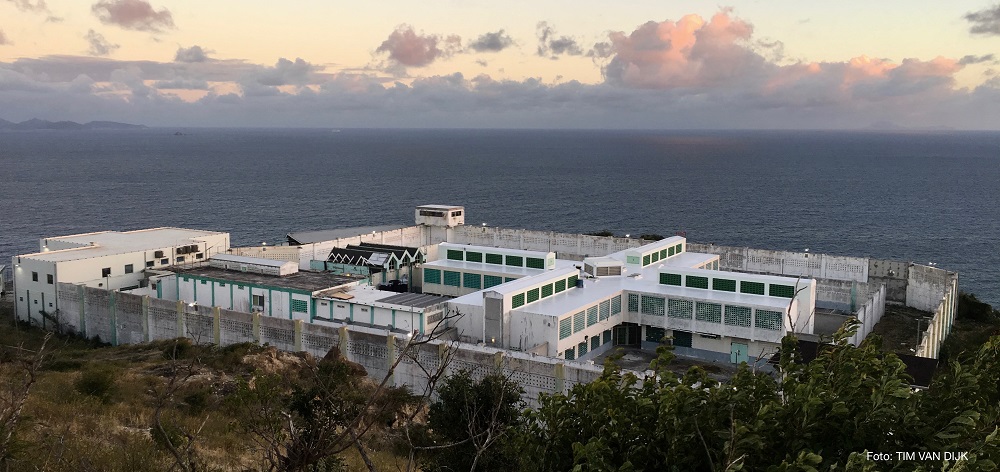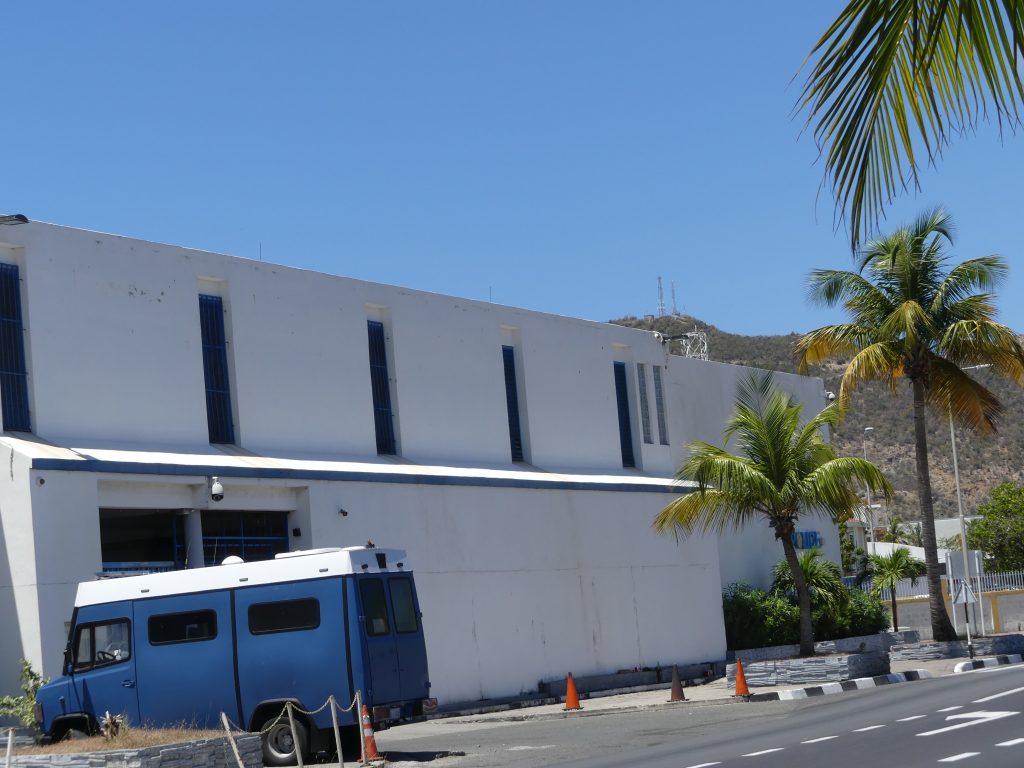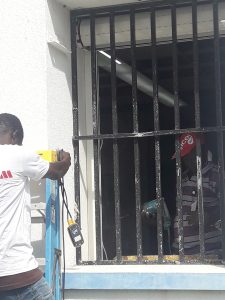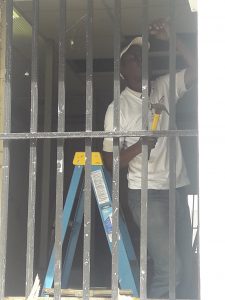St. Maarten detention system needs enhanced supervision

PHILIPSBURG — Enhanced supervision by the (European) Committee of Ministers is “of vital importance to ensure structural improvement of the St. Maarten detention system in line with international human rights standards.” That is the conclusion of a letter to the Department for the Execution of Judgments of the European Court of Human Rights from Adriana van Dooijeweert, the President of the Dutch Institute for Human Rights.
 The judgment at hand is the ruling in the case of Francesco Corallo versus The Netherlands. The Italian-born Dutch businessman spent 8 months and three days in custody at the police station in Philipsburg between December 12, 2016, and March 29, 2017, awaiting his extradition to Italy. The Court of Human Rights ruled that Corallo’s detention-conditions violated article 3 of the European Human Rights Treaty. This article prohibits the inhuman and humiliating treatment of detainees.
The judgment at hand is the ruling in the case of Francesco Corallo versus The Netherlands. The Italian-born Dutch businessman spent 8 months and three days in custody at the police station in Philipsburg between December 12, 2016, and March 29, 2017, awaiting his extradition to Italy. The Court of Human Rights ruled that Corallo’s detention-conditions violated article 3 of the European Human Rights Treaty. This article prohibits the inhuman and humiliating treatment of detainees.
From Dooijeweert’s letter it appears that not much has changed since the Corallo-ruling of October 9, 2018, because currently there are three more cases pending at the European Human Rights Court and they are all complaints about the detention situation at the police station.
Van Dooijeweert writes in her letter that there are “some early signs of progress, after years of substandard conditions in St. Maarten’s detention system.”
However, while solutions seem to be everlasting works in progress, the real problems are still there. The Dutch government acknowledges in its action plan of December 17, 2020, that the maximum stay of ten days in police cells is still being exceeded but that this is due to the lack of space in the Pointe Blanche remand center.

“This demonstrates the interrelated problems of the police station and the Pointe Blanche prison,” Van Dooijeweert observes. “If the detention situation in Pointe Blanche does not improve, degrading circumstances in the police station will persist.”
The current state of the detention system also prevents the return of prisoners that are currently behind bars in the Netherlands (21) and in Curacao (5). “There is no prospect for return for these detainees. This provides a gloomy picture that is even gloomier than it was at the time St. Maarten became independent, on October 10, 2010. Noting that we are ten years further and that still no progress has been made is a disastrous finding,” the Progress Committee writes in its latest report.
Van Dooijeweert is not all negative. She reports that the government of St. Maarten has “visibly shown willingness and political agreement to take concrete steps to achieve progress.”
The Netherlands has offered a €30 million support package for the construction of a new prison and for structural improvements of the detention conditions. St. Maarten and the Netherlands have agreed to June 15, 2021, as the implementation date for certain measures. An agreement with UNOPS, the United Nations Office for Project services, is waiting to be signed one of these days.
The European Committee for the Prevention of Torture and inhuman or degrading treatment or punishment (usually referred to as the Committee for the Prevention of Torture, or CPT) noted after a visit to St. Maarten in 2014 that the police station is “totally inappropriate for holding remand and sentenced prisoners.”
The CPT recommended a maximum stay of 3 days and never longer than ten days in a police cell. Exceeding these terms equals a human rights violation.
CPT furthermore recommended at least 4 square meters of living space per detainee. When Corallo was held at the police station he spent part of the time in a multi-occupancy cell of 16 square meters with five or six, and at times even more, detainees. That lowered his living space to below 3 square meters and brought it at times even down to 2 square meters.
The CPT found the detention conditions at the police station to be “extremely poor.” The facility at the back of the station consists of 12 cells with a maximum capacity of 26 detainees. During the CPT-visit in 2014 there were 31 detainees in this facility.
The CPT-observers found that the cell area was dark and dank (moist and humid), there was little access to natural light, the artificial light was insufficient for reading, the ventilation was insufficient, there was a foul smell and toilets were leaking.
Sentenced detainees got two times per day one hour access to fresh air in the court yard and remand detainees (like Corallo) once a day one hour.
The European Court of Human Rights awarded Corallo in 2018 $10,500 in damages but it is unclear whether he has received this money and from whom. State Secretary Knops told the Dutch parliament that the fine would be forwarded to the responsible party (St. Maarten), while local politicians have argued that the Netherlands ought to foot the bill, because the case at the Human Rights Court was Corallo vs. The Netherlands and not Corallo vs. St. Maarten.


Photo caption: File photos of repair works been done at the jail of the Philipsburg detention cells in January 2019.
###
Related article:
Detentiesysteem vereist verhoogd toezicht






















